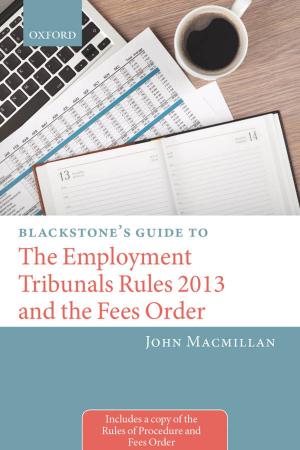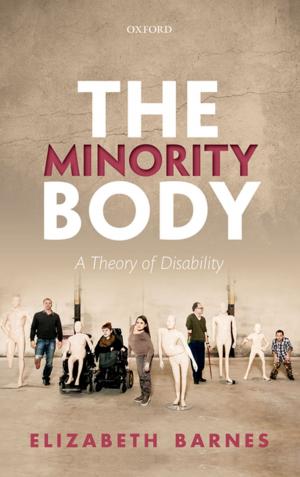The Teleology of Action in Plato's Republic
Nonfiction, Religion & Spirituality, Philosophy, Ancient| Author: | Andrew Payne | ISBN: | 9780192536693 |
| Publisher: | OUP Oxford | Publication: | October 13, 2017 |
| Imprint: | OUP Oxford | Language: | English |
| Author: | Andrew Payne |
| ISBN: | 9780192536693 |
| Publisher: | OUP Oxford |
| Publication: | October 13, 2017 |
| Imprint: | OUP Oxford |
| Language: | English |
In many discussions of ancient philosophy, teleology is acknowledged as an important theme. How do we act for a particular end or purpose? One common answer describes humans as acting with the intention of achieving a goal. A person selects particular actions with the thought that these actions will lead to that goal. Andrew Payne accepts that this is one good answer to our question but proposes that it is not the only one. In Plato's Republic, Socrates appeals to a different understanding of how humans act for the sake of ends as they live together in political communities and pursue knowledge. As they carry out activities that are necessary for human flourishing, their actions can produce unintended results that signal the full completion of human capacities. For example, performing the actions of a just individual can help promote the establishment of a just society as an unintended result. Such unintended results qualify as ends or purposes of human action. This volume fully explores this functional teleology of action in Plato's Republic.
In many discussions of ancient philosophy, teleology is acknowledged as an important theme. How do we act for a particular end or purpose? One common answer describes humans as acting with the intention of achieving a goal. A person selects particular actions with the thought that these actions will lead to that goal. Andrew Payne accepts that this is one good answer to our question but proposes that it is not the only one. In Plato's Republic, Socrates appeals to a different understanding of how humans act for the sake of ends as they live together in political communities and pursue knowledge. As they carry out activities that are necessary for human flourishing, their actions can produce unintended results that signal the full completion of human capacities. For example, performing the actions of a just individual can help promote the establishment of a just society as an unintended result. Such unintended results qualify as ends or purposes of human action. This volume fully explores this functional teleology of action in Plato's Republic.















